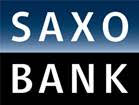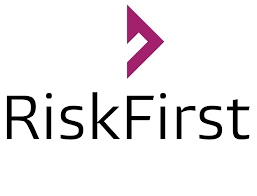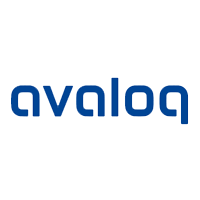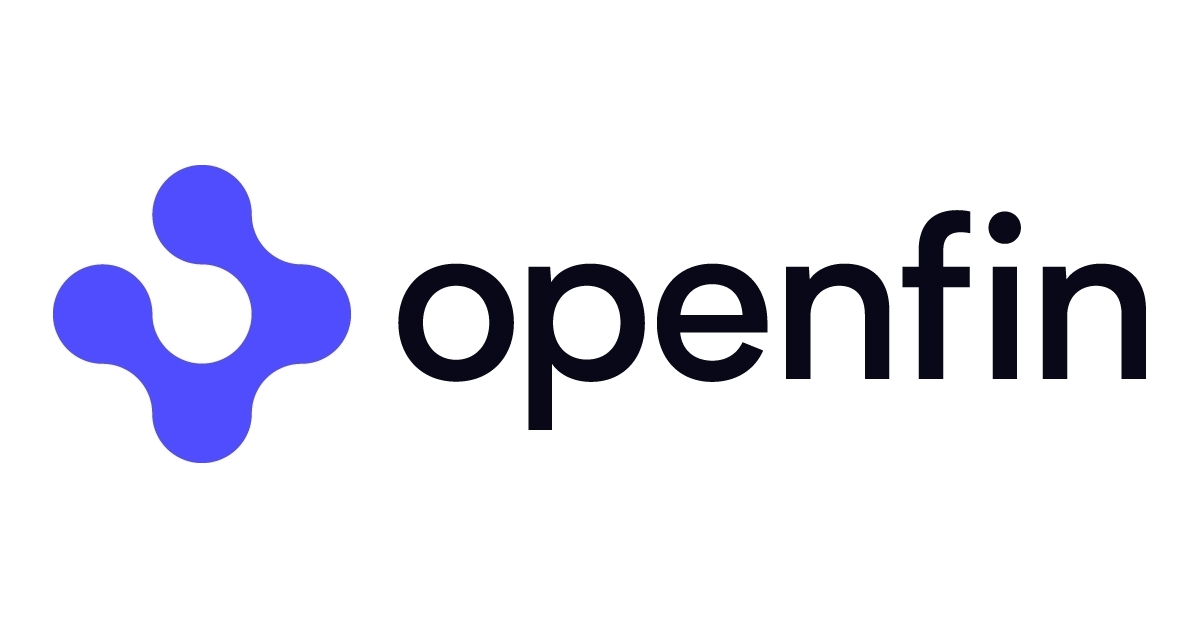Published
- 01:00 am

Saxo Bank, the leading Fintech specialist focused on multi-asset trading and investment, today announces two changes to the Board of Management in order to further strengthen client focus, corporate governance and strategy execution.
- Board of Management member Søren Kyhl has been promoted to Deputy CEO while he continues in his role as COO.
- Damian Bunce has been appointed member of the Board of Management with the new title of Chief Commercial Officer.
Members of the Board of Management are appointed by the Board of Directors. The Board of Management now consists of CEO Kim Fournais, Deputy CEO and COO Søren Kyhl, CFRO Steen Blaafalk and CCO Damian Bunce.
The changes strengthen Saxo Bank’s leadership and accountability in the Board of Management in relation to clients, shareholders, Board of Directors, regulators and employees.
With Damian Bunce as a new member of the Board of Management, Saxo further increases the essential client and commercial focus. The promotion of Søren Kyhl to the newly established role as Deputy CEO adds even more firepower to Saxo’s strategy execution and provides a steadfast long-term leadership of the Bank. As Deputy CEO and COO, Søren is the natural and logical interim successor to Kim Fournais should that become necessary.
Kim Fournais comments:
“I am proud and satisfied that Søren has been appointed Deputy CEO and that Damian will join our Board of Management. The appointments reflect their excellent skills, knowledge, attitude, motivation and high importance to the Bank and our future growth journey. With these changes we ensure clarity, focus and accountability and the changes allow me to focus on constantly improving and executing the strategy for Saxo Bank while building a world-class team and organisation.
Søren is a very natural and competent Deputy CEO that I trust to run certain important strategic priorities. These changes will further strengthen and professionalise Saxo and I am proud to be leading such a unique team. I am more passionate and fired up than ever to ensure that Saxo will prevail and become the fastest growing financial institution within traders, investors and wholesale partners. This is therefore not a retirement plan for me but an upgrade of our leadership capabilities, better supporting our fiduciary duties as well as creating a natural deputy function for me and Saxo going forward.”
The Executive Team will continue to be the global executive leadership team in Saxo Bank. Besides from the Board of Management members, it consists of CIO Ashok Kalyanswamy and CHRO Stig Christensen.
Related News
- 09:00 am

The number of US pension plans with assets equal to or exceeding 95% of their liabilities on an accounting basis has risen to 37%, nearly doubling from 20% at the end of 2017, according to RiskFirst data.
Analysis by fintech company RiskFirst of the data from approximately 500 plans, with total assets exceeding $100bn, reveals that, in Q3 2018, alone there has been almost a 25% increase in plans within this funding level band – which arguably makes a buyout or significant risk-transfer deal a feasible option.This sharp increase reflects the favorable conditions in the market to de-risk.
Michael Carse, DB Pensions Product Manager,RiskFirst, says: “The 2017 plan year is the last opportunity to maximize a pension plan’s tax deduction before the lower corporate tax rate comes into force. For the majority of US corporate plans, the final deadline for plan sponsors to make contributions for the 2017 plan year was September 15th2018, and this been reflected in our Q3 2018 analysis, with a number of plans putting in sizeable contributions before the deadline, thereby improving plans’ funded positions further since June 30th.”
Accounting reforms, increased PBGC premiums, and afavorable quarter for market movements – with liability discount rates increasing slightly (resulting in liabilities decreasing), and positive asset returns – are additional factors that could have contributed.
Matthew Seymour, CEO, RiskFirst, comments: “As pension plans look to de-risk, it is all the more important that they are positioned with the right tools to manage risk effectively. By carrying out detailed analysis on both assets and liabilities and regularly and accurately monitoring their funding levels,plans can make truly informed decisions on how to optimize their strategy andharness opportunities in the market.”
Related News
- 04:00 am

When Mastercard made a commitment to bring affordable financial access to 500 million people by 2020 and 40 million micro merchants by 2021, many more promises came with it. In my role, the biggest of those promises is to uncover the systemic causes of financial inclusion among businesses; then gather insights, develop tools and forge partnerships to remove those barriers.
Let’s start with the numbers: there are approximately 162 million formal micro, small and medium enterprises (MSMEs) in emerging markets globally. These small businesses generate an estimated nine out of ten new jobs around the world today and are drivers of economic growth.
But there are fundamental problems with how these businesses operate. First, many of these businesses transact only in cash, but a reliance on cash makes them vulnerable to theft. It also leaves no data trail, leading to problem number two.
Without any historic business records, it’s extremely difficult for businesses to access financing. In emerging markets, MSMEs are facing a $5.2 trillion finance gap, which means that almost 60% of this segment’s potential finance demand is being overlooked.
But once we identify the problems, we can respond with solutions. For us, this includes:
- Channel Expansion: We value our long-standing partnerships with banks, but to drive change, we know we need to broaden our reach through other channels. My team and I look for innovation and scalability to drive impact, leading to deeper relationships with partners like the IFC, and new relationships with emerging fintechs and alternative lenders. In a recent example of new partnerships making a difference, we worked with Unilever and created a digital platform in Kenya called Jaza Duka that allows micro and small businesses to access and use low-risk micro-credit, underwritten by a participant bank.
- Segment-Based Strategy: My team worked hard to develop a segment-based strategy that will give small business owners a single relationship with their bank that addresses both their consumer and business needs. We’re focused on addressing the total needs of small business owners by bringing together products, services and acceptance capabilities, driven by our commitment to enable small business owners to buy, operate, and sell.
- Moving Beyond Payments: Our innovation, digitization and facilitation are giving banks, financial institutions and other partners the tools they need to function not only as service providers, but as trusted advisors to small business owners. For example, Mastercard Track, a global trade platform which we developed in collaboration with Microsoft, addresses key small business challenges by streamlining and automating the procure-to-pay-process – enabling businesses to manage business identity, compliance and payments efficiently.
Access to finance is just one topic I’ll be discussing at the SME Finance Forum in Madrid on Tuesday. I’m looking forward to joining others to shed light on the challenges and unlock the solutions to help our MSMEs, and, in turn, our global economy thrive.
Related News
- 05:00 am

Deutsche Bank and HCL Technologies (HCL), a leading global technology company, today announced a strategic partnership to transform the bank’s global cheque processing operations. Under the terms of the agreement, HCL will build a cloud-based digital and fully scalable cheque processing platform for the bank. The new IT-platform is expected to go live in 2019.
The new cloud-based IT-platform will enable Deutsche Bank to further reduce the complexity of its IT-landscape, decrease cost, increase straight-through processing capabilities and efficiencies in cheques processing. Moreover, through advanced data analytics, the bank will enable its corporate and institutional clients to use data generated out of the platform, to better manage business flows and working capital.
“While cheques are still widely used around the world, the volumes across the industry are falling and processing them remains a labour intensive, highly manual task,” said Shahrokh Moinian, Global Head of Cash Products, Global Transaction Banking of Deutsche Bank. “This strategic partnership is a great example where we are proactively responding to client needs and changing industry dynamics. We are turning a challenge of a commoditized product with declining volumes into an opportunity for innovation and creation of digital assets, which will ultimately benefit our customers.”
“This is a significant milestone in HCL’s long-standing partnership with Deutsche Bank,” said Rahul Singh, President, Financial Services at HCL Technologies. “While banking is becoming increasingly digitised, processing cheques is still a paper-based process. HCL will leverage its engineering capabilities to build a digital, cloud-based, paperless platform which enables Deutsche Bank and other banks to benefit from efficiencies and deliver value-added services to their customers.”
Related News
- 01:00 am

Starting today, customers at Carrefour Italia iper, market and express stores can pay for their groceries via smartphone in a simple, fast and secure way directly from their current account thanks to Jiffy.
The service, made available by SIA and Intesa Sanpaolo, lets customers do their shopping at stores in the Carrefour Italia chain in cashless mode in just a few clicks. After opening the Intesa Sanpaolo Mobile app, they need only point at the QR code generated at the cash desk with their smartphone and the transaction is completed.
The innovative digital payment experience introduced with Jiffy offers immediate advantages both for the end customer and for the retail trade sector. Indeed, in just a few simple steps, from the XME Pay digital wallet via Jiffy, consumers can pay at self‐service or manned cash desks using their fingerprint or facial recognition to confirm the transaction. On its part, Carrefour Italia has at its disposal an advanced payment management and collection system.
The Jiffy service, already active at more than 130 Italian banks, also enables money transfer between private individuals simply by using the contacts present in their smartphone as well as payments in stores and online. A further strength of the partnership is the recent integration of Jiffy with BANCOMAT Pay. The digital evolution of the domestic circuit will extend the usability of the services to a potential pool of 37 million PagoBANCOMAT® cardholders and over 440 banks.
“Thanks to the innovative solution Jiffy and to exceptional partners like SIA and Gruppo Intesa Sanpaolo, Carrefour Italia further enriches the range of services it offers to its customers, improving the shopping experience at its stores and strengthening even more the relationship of trust with the brand”, commented Tiziano Depaoli, Director of Financial Services at Carrefour Italia. “Embracing the digital transformation and its potentials is a necessary path we have been on for some time to respond in a simple, immediate and secure manner to the needs of our final consumers, offering them high added value and increasingly personalized services”.
“Intesa Sanpaolo Group is one of the leading banks in Europe for its positioning in instant payments and in digitalization of payment processes. We want to be among the major players in the technological challenge underway and that is why we are studying and developing new payment methods that make everyday life better”,said Stefano Favale, Head of Global Transaction Banking at Intesa Sanpaolo. “With the introduction of this solution, Intesa Sanpaolo customers can pay at Carrefour with XME Pay, the wallet available in the Intesa Sanpaolo Mobile app that today counts 50 million logins every month, by 3 million customers.”
“With the launch at all Carrefour stores, Jiffy reinforces its position as an innovative payment service able to make the purchase experience via smartphone convenient, fast and totally secure”, commented Marco Polissi, Head of the Jiffy service at SIA. “Following on from stores, airport parking and renewal of local public transport passes, now the retail trade channel also turns to our digital service to offer its customers cashless payment methods in tune with the times”.
Related News
- 06:00 am

Gold-i has launched Crypto Switch™ 2.0, providing brokers worldwide with a fully cleared cryptocurrency product and a cost-effective, efficient means of accessing multiple cryptocurrency market makers who can provide deep pools of liquidity as a CFD or physical asset.
The innovative technology firm has partnered with clearing house, FXCH, to enable brokers to fully hedge their crypto flow and has integrated its Crypto SwitchTM with four of the biggest global cryptocurrency market markers, B2C2, Bluefire Capital, DV Chain and Hehmeyer.
This latest development from Gold-i is a significant evolution of its award-winning Crypto SwitchTM which enables brokers using Gold-i’s Matrix, MT4 Bridge or MT5 Gateway to access leading global Crypto Exchanges and Liquidity Providers for pricing and trading. As Crypto SwitchTM 2.0 provides a fully cleared solution, brokers only need to place funds with a single entity, transforming the opportunity for them to offer aggregated cryptocurrency liquidity to their clients and enabling them to fully hedge their risk.
Tom Higgins, CEO, Gold-i explains, “FXCH is a cryptocurrency clearing house - it acts like a Prime Broker does in the FX world. Using Crypto SwitchTM 2.0, brokers can deposit funds with FXCH who becomes their counterparty and gives up the trades like a PB, managing the risk for brokers and minimising exposure with each of the cryptocurrency market makers.
“With Crypto SwitchTM 2.0 we have created a model for brokers to have access to both physical and CFD cryptocurrencies which can be aggregated and cleared – a model which benefits the whole Gold-i Matrix NETwork. It opens up previously inaccessible revenue streams for “Crypto Prime Brokers” who can redistribute cryptocurrency liquidity as their own. Market makers benefit by getting flow into their business for their crypto trading and the exchanges get the trading from their market makers. It’s a scalable model on a global basis and no one else in the MetaTrader world is doing this.”
Related News
- 04:00 am

For the third year in a row, Avaloq, the international fintech and leader in integrated banking solutions, has been named Star Performer in the ‘Capital Markets BPO – Service Provider Landscape with Services PEAK Matrix Assessment 2018’ by Everest Group. The assessment is an industry-recognized analysis used by enterprises to make critical decisions about global services providers. Participants also look to the PEAK Matrix™ to gauge and calibrate their offerings against others in the industry or market.
Everest Group’s PEAK Matrix™ provides an objective evaluation of key service providers in the global services space. Entrants are analyzed based on their market impact (in the categories of market adoption, portfolio mix and value delivered), and their vision and capability (in the categories of vision and strategy, scope of services offered, innovation and investments, and delivery footprint).
Avaloq was named a Star Performer in recognition of its growth and achievements over the past 12 months that stood above industry average. A key factor included the creation of a new global banking operations organization to harmonize service delivery and improve efficiency, quality and control. To further improve the already high levels of straight-through processing rates, Avaloq increased their use of robotic process automation (RPA) and plans to apply artificial intelligence techniques to maximize automation levels and minimize operational risk.
The PEAK Matrix™ Assessment follows a number of industry awards for Avaloq achieved over the past couple of months. It was recently named overall winner in the 2018 IDC Fintech Rankings Real Results Awards, for instance, and was named a Leader in Gartner’s Magic Quadrant for Global Retail Core Banking.
Juerg Hunziker, Avaloq’s Group CEO, said: “We are thrilled to be named a Star Performer in ‘Capital Markets BPO – Service Provider Landscape with Services PEAK Matrix™’ by Everest Group. This award is a testament to Avaloq’s focus on developing innovative solutions for our clients, helping them best service their own clients in turn. This is a strong acknowledgement of our success with our clients who partner with us as a way to drive their digital agendas and achieve efficiency gains with standardization.”
Related News

Sarah Jackson
Director of Credit Services at Equiniti
It is said that in time everything changes. Certainly, how most of us feel about borrowing money is likely to change, possibly many times, over the course of our lives. see more
- 05:00 am

Fintech startup Sharegain, whose securities lending platform allows any investor to generate revenue through loaning out their financial assets, has raised a total of $12m (including $5m in the latest round) to support the roll-out of its platform to private banks, online brokers and robo-advisers, as well as scaling up its operations with family offices and asset management firms in line with significant early demand. The funding, over two rounds, comes from leading Venture Capital firms Blumberg Capital, Target Global, Maverick Ventures Israel, Rhodium and private investors from the financial industry.
For over 40 years, some of the world’s largest investors have made additional gains through securities lending - loaning out their stocks, bonds and ETFs (Exchange Traded Funds) in return for a payment known as ‘lending revenue’. Securities lending is a $2.5tn market, but this represents a tiny proportion of the industry’s potential; there are over $40tn in assets currently sitting idle, globally. Until now, the sector has been confined to a small number of large institutional investors. As the first fintech to receive FCA approval to offer its SLaaS platform to retail investors,
Sharegain aims to create a more transparent and effective market that’s open to any investor with all the benefits that will bring, from greater liquidity, to better data, to eventually building long-term trust in capital markets. The Sharegain team blends the best of two worlds - British capital markets expertise and Israeli technology talent. Its senior team has a combined 70 years’ experience in technology and finance.
Boaz Yaari, CEO and co-founder, also brings deep personal insight of capital markets and securities lending. With 14 years’ experience in capital markets, he has held roles as a derivatives trader at a top-tier bank, and portfolio manager at various European hedge funds. For financial institutions seeking additional revenue in a low-yield and volatile environment, Sharegain will simplify the securities lending process at scale - with a regulation-proof platform that is effortless to implement. For private investors and wealth managers, Sharegain opens up the opportunity of securities lending for the first time with a transparent, controlled, and simple solution. An undisclosed group of lenders are already using the Sharegain platform; the business is also collaborating with global financial institutions to drive best practice and a more transparent approach to securities lending.
Boaz Yaari, CEO and Co-Founder of Sharegain, explained: “This is a 40-year, $2.5tn industry whose full potential has never been fulfilled. A performant securities lending market will not only benefit all investors in an increasingly volatile and low-yield environment, but it will be good for the market overall. It brings greater liquidity and efficiency, ensuring the settlement of certain trades, promoting price discovery and facilitating market making. “The old way of securities lending was complex, opaque and outdated, in a ‘need to know’ system that few understood and even fewer controlled. Now, for the first time, it is effortless, effective and open to any investor. We’re excited to be on-boarding investors globally and helping their wealth work harder for them.”
Mike Lobanov, General Partner at Target Global, added: “With a first class team, strong market fit and significant early demand from institutions and private investors, Sharegain already displays a mix of market-shaping potential and ability to execute rarely seen among startups in capital markets. We’re excited to be working with the Sharegain team as it scales-up operations and unlocks the huge potential of the securities lending category.”
Related News
- 01:00 am

OpenFin won the award for ‘Best use of the Agile methodology by a technology vendor’ at the 12th annual Buy-Side Technology Awards held at the May Fair Hotel in London on Friday, 2nd November.
Hosted by Waters Magazine, the 2018 Buy-Side Technology Awards aim to recognise leading technologies and vendors in their area of expertise; winners are selected by a panel of 9 judges made up of buy-side focused technology consultants and experienced WatersTechnology journalists.
The recognition for ‘best use of the Agile methodology by a technology vendor’ was awarded for OpenFin’s collaboration with technology providers such as Algomi and Trumid, who have deployed their desktop applications on the OpenFin operating system (OS) to provide the buy-side with tools used in their daily workflow. Installing the software needed to deploy new or updated applications, such as those used for trading, order management, market data, research, or analytics onto buy-side desktops can be an arduous and slow process. The OpenFin operating system (OS) solves this problem by enabling fast and iterative, agile development and deployment for desktop apps.
Adam Toms, CEO of OpenFin Europe, said: “We’re delighted to win the award for ‘Best use of the Agile methodology by a technology vendor’. We are obsessive about collaboration and innovation, supporting the entire ecosystem of technology vendors, along with the buy-side and sell-side in securely deploying financial applications directly onto permissioned desktops. It’s great to receive industry recognition for our efforts and this award is testament to our team’s hard work throughout the year.”
The OpenFin OS is now being used to deploy more than 1,000 applications to more than 1500 major banks and buy-side firms, across 60+ countries and more than 175,000 desktops.









